5 Key Benefits of Vitamin B1: An Essential Nutrient for Daily Vitality
Through this post, let’s explore the vital roles and health benefits of Vitamin B1 in maintaining our well-being, and understand the conditions that can arise from a deficiency of this essential nutrient.
In the late 19th century, a disease called “beriberi” spread across Southeast Asia, causing people to experience sudden muscle weakness and chronic fatigue, severely disrupting daily life. Though doctors worked hard to uncover the cause, they faced many challenges. Eventually, they discovered that individuals eating a diet consisting solely of refined white rice were more susceptible, while those who consumed whole grains and brown rice remained healthy. This led to the groundbreaking discovery that the disease was linked to a lack of Vitamin B1, or thiamine. This was a milestone in nutritional science, marking the beginning of our understanding of Vitamin B1’s essential role in the body.
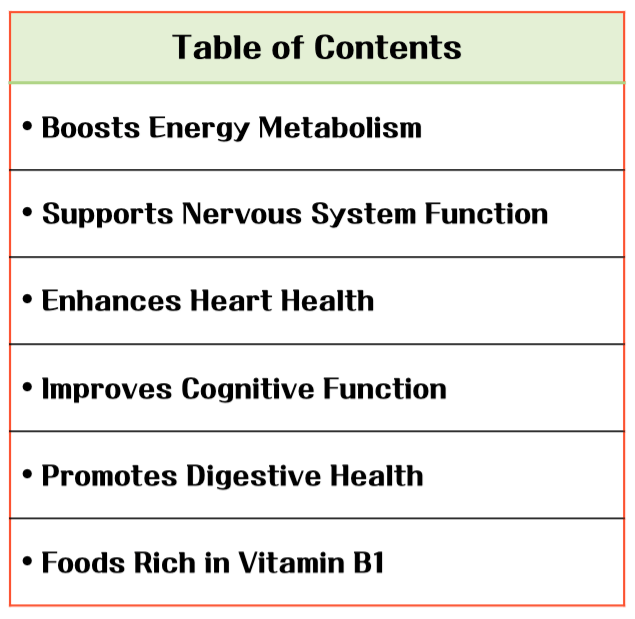
Now, let’s dive into the key benefits of Vitamin B1 and examine the potential health risks associated with its deficiency.
- The 5 Key Benefits of Vitamin B1
1. Energy Metabolism Boost
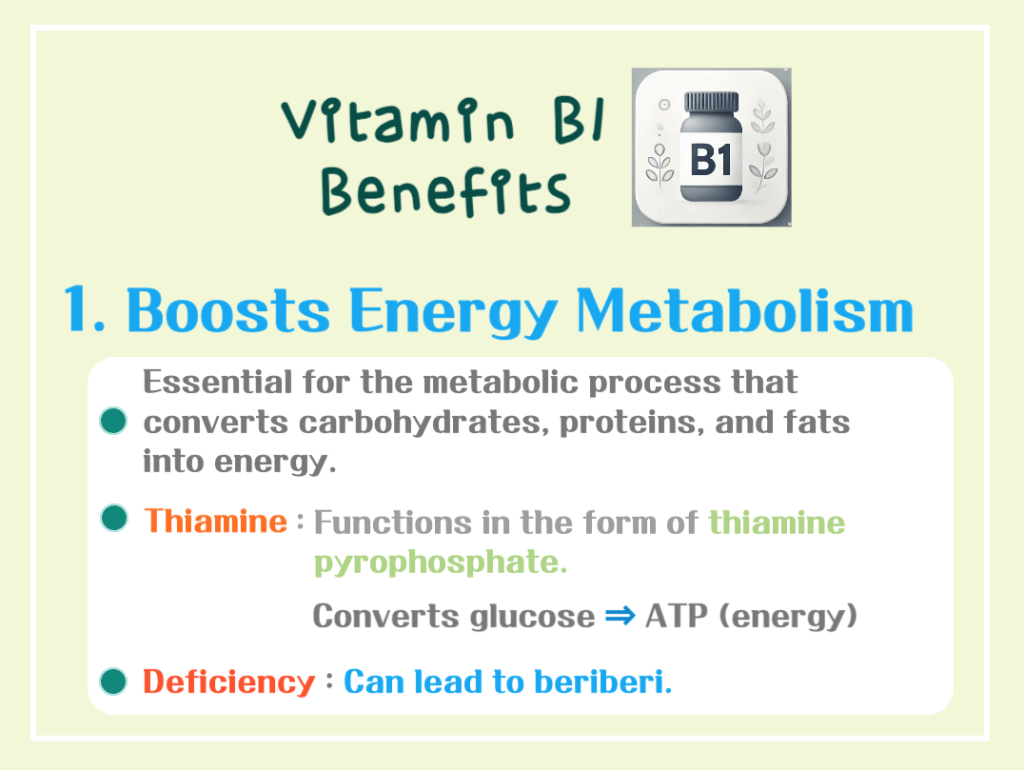
– Vitamin B1 (Thiamine) plays a crucial role in metabolizing carbohydrates, proteins, and fats into energy.
– Thiamine is converted into thiamine pyrophosphate, which acts in the pyruvate dehydrogenase complex to break down glucose and generate ATP (energy), enabling cells to produce energy normally.
– Deficiency: A lack of Vitamin B1 can lead to beriberi.
※ Beriberi: This disease disrupts energy metabolism, causing severe fatigue, muscle weakness, and, in extreme cases, heart failure or even death.
2. Maintains Nervous System Function
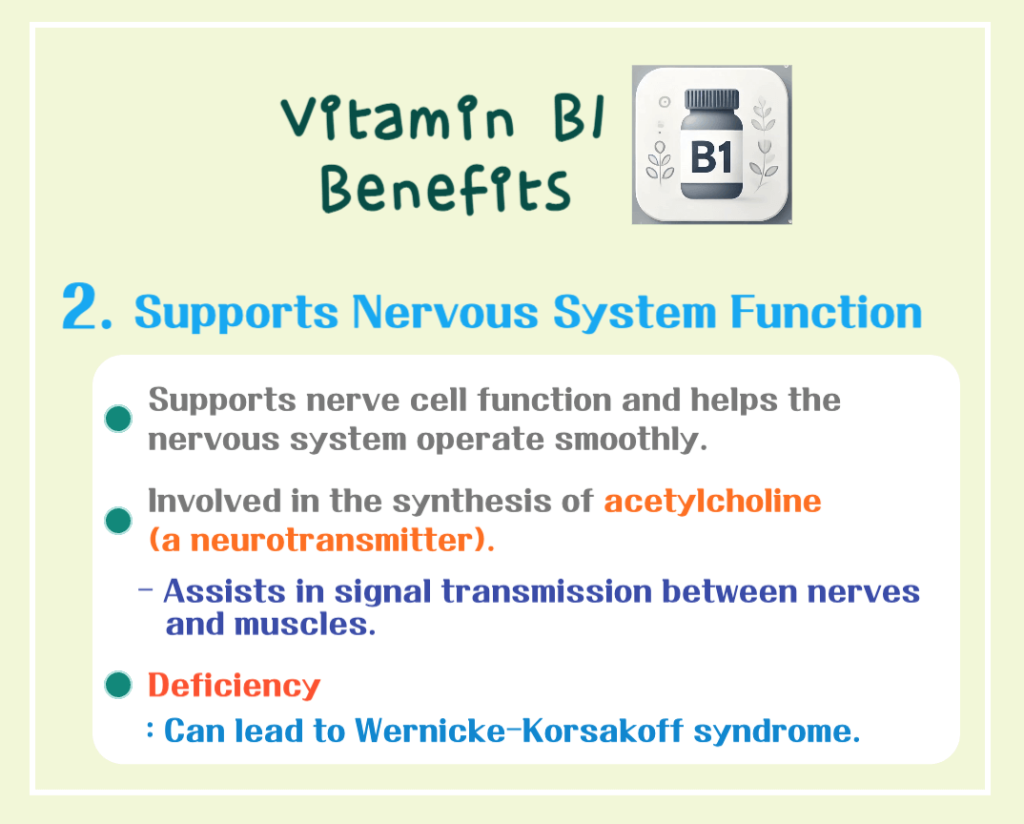
– Vitamin B1 (Thiamine) supports the function of nerve cells and helps the nervous system to work smoothly, particularly by maintaining signal transmission between nerves and muscles.
– It plays a role in synthesizing acetylcholine (a neurotransmitter), supporting the transmission of signals between nerves and muscles.
– It also aids in energy production within nerve cells, helping to maintain their function.
– Deficiency: If deficient, Vitamin B1 can lead to Wernicke-Korsakoff syndrome.
※ Wernicke-Korsakoff Syndrome: This syndrome severely impacts the nervous system and brain function, leading to confusion, memory loss, and impaired coordination. It is often seen in individuals with chronic alcoholism.
3. Enhances Heart Health

– Vitamin B1 maintains the normal functioning of the heart, stabilizing circulation and heart rate.
– Thiamine helps the heart muscle generate sufficient ATP, facilitating smooth heartbeats and supporting the heart’s energy metabolism (as the heart is a high-energy-consuming organ).
– Deficiency: If deficient, Vitamin B1 can result in wet beriberi.
※ Wet Beriberi: This form of beriberi can cause heart failure, arrhythmia, heart enlargement, and in severe cases, acute cardiac arrest.
4. Improves Cognitive Function
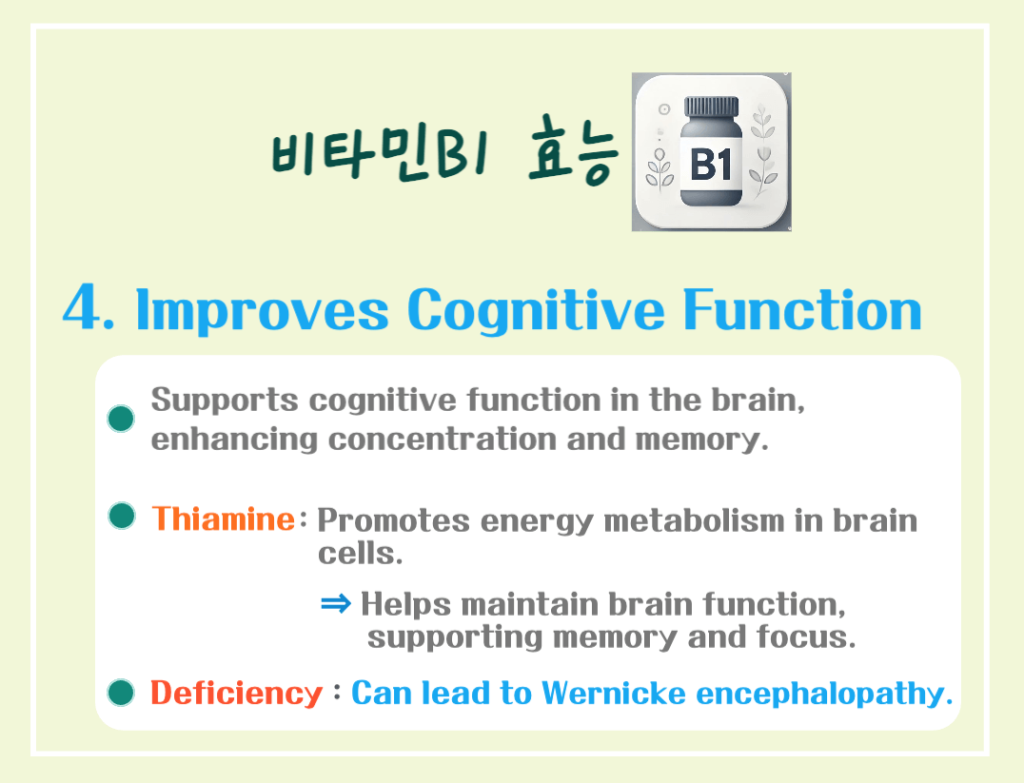
– Vitamin B1 (Thiamine) supports cognitive function in the brain, enhancing focus and memory.
– Thiamine is crucial for the synthesis of neurotransmitters and the transmission of neural signals.
– It promotes energy metabolism in brain cells, helping to maintain brain function, memory, and focus.
– Deficiency: If deficient, Vitamin B1 can cause Wernicke encephalopathy.
※ Wernicke Encephalopathy: This condition, caused by acute thiamine deficiency, presents symptoms such as confusion, vision impairment, and coordination issues, and without proper treatment, it can lead to permanent brain damage.
5. Promotes Digestive Health
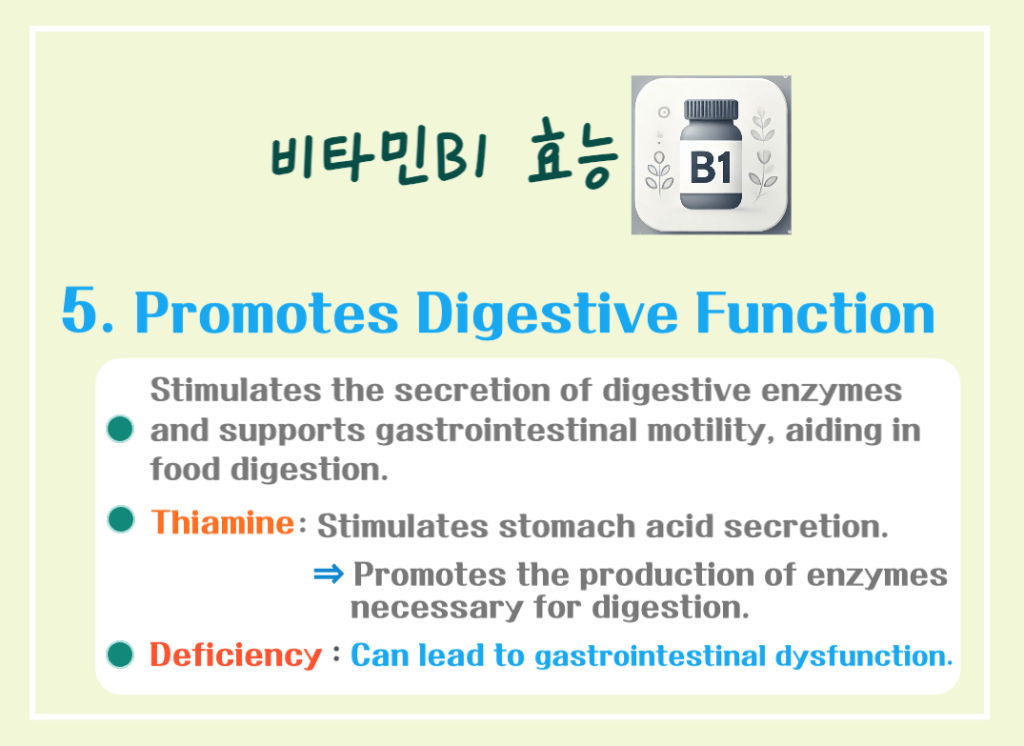
– Vitamin B1 (Thiamine) stimulates the secretion of digestive enzymes and supports gastrointestinal motility, aiding in food digestion.
– Thiamine helps stimulate stomach acid secretion and promotes the production of enzymes necessary for digestion.
– It is important in carbohydrate digestion, ensuring the digestive system functions smoothly.
– Deficiency: If deficient, Vitamin B1 can result in gastrointestinal disorders.
※ Gastrointestinal Disorders: Symptoms may include indigestion, loss of appetite, and weight loss.
Final Thoughts
Through this post on the five key benefits of Vitamin B1, we’ve learned that it is an essential nutrient that plays a crucial role in converting the food we eat into energy. Vitamin B1 is particularly important for carbohydrate metabolism and the proper functioning of the nervous system, both of which have a profound impact on our vitality and daily activities. Why not optimize your body’s energy metabolism and maintain a vibrant, healthy life by ensuring adequate Vitamin B1 intake from nutrient-rich foods?
For a deeper look into Vitamin B1-rich foods, check the following post on food sources high in this essential nutrient.
Additionally, you may find it helpful to consult the following site to check prices and fluctuations in raw food materials:
Thank you for reading this post!


